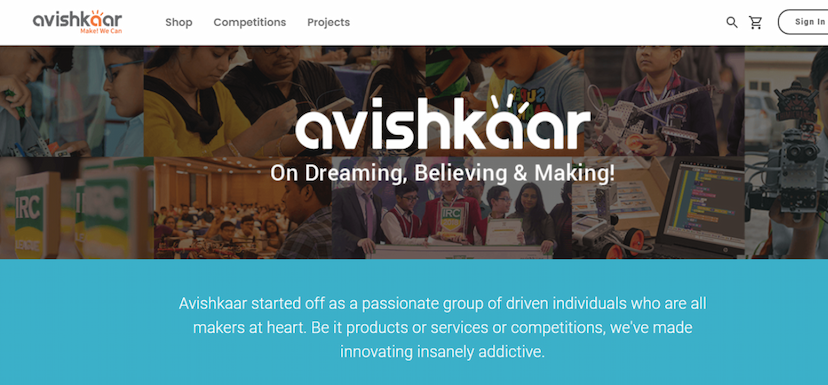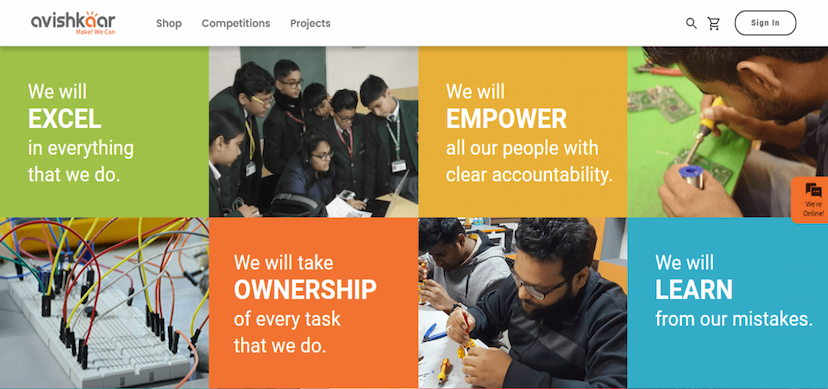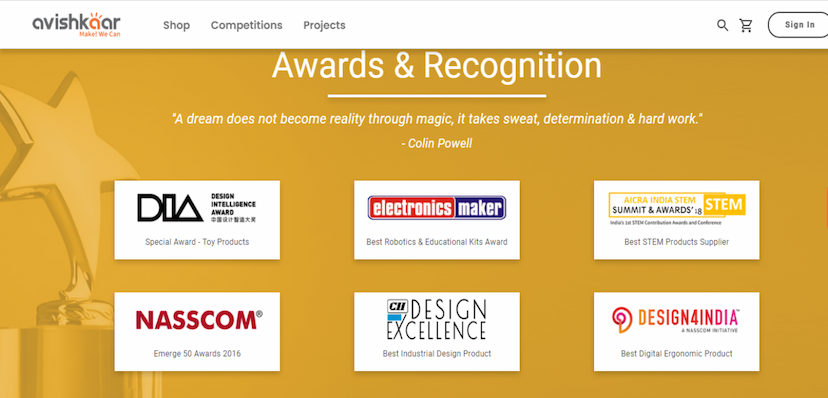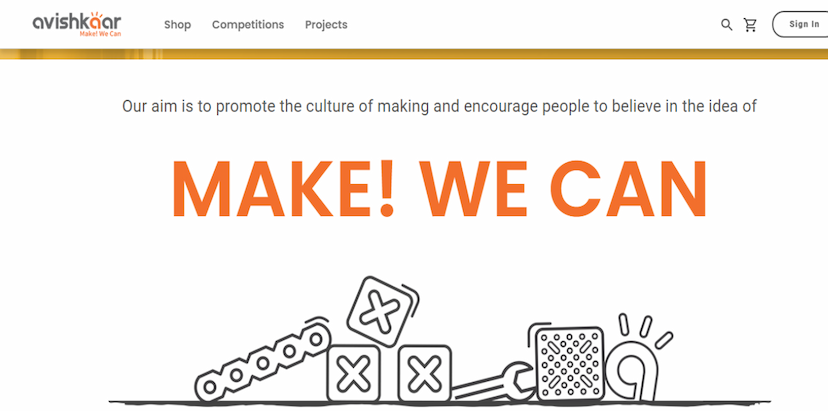Avishkaar conducts great survey among parents and children

Avishkaar conducted a survey recently among parents and children spread across Indian cities recently.
It involved over 5000 parents and 5000 children located across cities including Delhi NCR, Chennai, Mumbai, Kolkata, Bangalore, Pune, Hyderabad and Cochin.


Avishkaar conducts great survey among parents and children
What did the survey by Avishkaar highlight? It indicated that gender disparity in STEM fields in India is a glaring issue, owing to a lack of female role models in the industry.
It pointed that about 95 percent of children including girls recall male role models as inspiration in STEM fields, highlighting the urgent need to increase the exposure around women role models in STEM fields.
The survey of Avishkaar also tried to find out why not many girl children choose to pursue a career in STEM.

The survey revealed that 50 percent of parents feel the societal pressures are one of the main reason why girl children do not go for a career in STEM (Science, Technology, Engineering and Mathematics).
About 42 percent feel parents’ influence plays a role when it comes to girls choosing a career in STEM.
Over 30 percent of parents felt the work environment in STEM fields is more suitable to males than females, which is also why not many women take up a career in STEM.

What else did the survey by Avishkaar find out? It highlighted the need for schools to implement hands-on learning and introduce children to the world of innovation and move away from rote learning techniques.

Also, only 33 percent of the parents who took part in the survey by Avishkaar felt that current school curriculum is enough to help their children prepare for a future in next-gen tech and STEM to some extent.
With the aim to gauge the perception of parents of young children, as well as the children
themselves on their interest levels and career aspirations in STEM and next-generation
technology fields, the survey is a deep-dive into the hidden concerns in the industry.

Avishkaar is at the forefront of implementing such changes to ensure gender neutrality along with a more hands-on learning experience.
Speaking about the insights from the survey, COO and co-founder of Avishkaar Pooja Goyal said it is heartening to see that parents are making conscious choices to ensure they nurture an innovative mindset among their children.
I’m convinced that If our children have to thrive in the world of tomorrow, we need to create micro-environments in schools and homes that make it safe for children to experiment, to take risks, to fail, to think outside the box, to break things, and to build new things, said COO of Avishkaar.
‘We need to ensure that our children are not mere consumers but creators of technology.’
‘The process of building new things and creating new solutions is rife with failure and needs a lot of grit and resilience, both skills that we need to inculcate in our children.’
‘We need to help our children build this muscle from an early age.’

The next important step is gender neutrality, where not every girl has to pursue STEM careers, but children who are really good at it and have interest in the field should have the opportunity to do that, said Pooja Goyal of Avishkaar.
What about other key insights of the survey by Avishkaar? It found that about 81 percent of parents with male children felt that next-gen technology education and STEM is critical for their child.
Interestingly, on the other hand, the survey of Avishkaar found out that only 68 percent of parents with female children said next-gen technology education and STEM is critical for their child.
The point that got the attention was parents with male children are more likely to motivate their children to go for a career in STEM than parents with girl children.
What about children? The survey by Avishkaar showed that 85 percent of male children would choose to pursue a career in STEM as compared to about 57 percent of female children.
Science still appears to hold the charm. This was again evident in the finding of the survey by Avishkaar.

This is followed by Science (46%) and mathematics (43%).
In contrast, only 23% of parents wish their child to pursue Arts-related subjects.
When looking at preference from a gender point of view, the survey of Avishkaar said 60% of parents with male children would like their child to pursue subjects related to IT/Technology, as compared to only 33% of parents with female children.
On the other hand, the survey of Avishkaar showed that 54% of children wish to pursue Science in future, while roughly 57% wish to pursue IT/ Technology.
Avishkaar is one of India’s largest robotics, coding and edtech providers for children between
the age group of 5 to 15 years.
Avishkaar is at the cutting edge of next-gen technology education providing a comprehensive platform to teach and learn 21st-century skills like Coding, Robotics, AI, IoT, 3D printing and Drones.
Read More – Most toughest exams in India
Also Read – Easiest exams in India






